
The etymology of the term ‘landscape’ might be traced back to the Dutch word ‘lantscap’ from the 13th century, meaning land region or environment’. It went on to acquire a new meaning as ‘scenery’ later in the 17th century when the word was introduced into the English language through a Dutch painting of substantial international acclaim. The Oxford Dictionary has defined ‘scenery’ as ‘the natural features of an area’ that people find ‘attractive to look at’. However, the term ‘landscape’ attained different scientific connotations by researchers from a plethora of disciplines over time. While landscape ecologists studied it in terms of the linkages between land use patterns over space and environmental processes, archaeologists and historical geographers concentrated on its origin and significance as heritage. Besides, cultural geographers perceived it as a societal and intellectual construct with noteworthy symbolic undertones. Conversely, landscape architects focused their attention on the visual aspects of ‘scenery’. Considering this wide gamut of perceptions among researchers, it was deemed necessary to arrive at a formal definition of the term.
Esta historia es de la edición LA 78 de Journal of Landscape Architecture.
Comience su prueba gratuita de Magzter GOLD de 7 días para acceder a miles de historias premium seleccionadas y a más de 9,000 revistas y periódicos.
Ya eres suscriptor ? Conectar
Esta historia es de la edición LA 78 de Journal of Landscape Architecture.
Comience su prueba gratuita de Magzter GOLD de 7 días para acceder a miles de historias premium seleccionadas y a más de 9,000 revistas y periódicos.
Ya eres suscriptor? Conectar
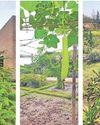
PLANTING IN URBAN AREAS NOTES
In urban landscapes, while balancing aesthetic design with their ecological functions, the understanding of plants in respect of their ecozones*, microhabitats, and species plays a crucial role. Native plants offer ecological benefits but face challenges in urban environments. There are some pragmatic considerations in this regard.
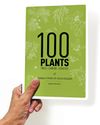
PLANTS IN ECOLOGY AND DESIGN
'100 Plants' offers insight into Delhi's ecology, guiding landscape architects and gardeners to cultivate sustainable, bio-diverse urban landscapes. It is an essential resource for all plant enthusiasts.
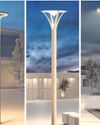
LANDSCAPE LUMINAIRES CAPTURING THE ESSENCE OF LANDSCAPES
Landscape luminaires blend with architecture, enhancing safety, security, accentuation, and aesthetics while minimizing light pollution and promoting sustainability for a captivating outdoor experience.
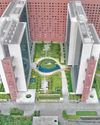
SURAT DIAMOND BOURSE
The landscape design of the corporate-commercial centre, inspired by the five elements of nature and Vastu principles, attempts to create a unique sense of place. It combines design with public art, encouraging a harmonious environment for business and leisure.
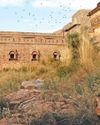
SIX SENSES FORT BARWARA RAJASTHAN
In the transformation of a historic 14th century fort-an erstwhile home of a Rajasthan royal family-into a luxury resort, native plants and indigenous materials play a pivotal role, redefining luxury with ecological sensitivity.
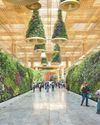
'A TERMINAL IN A GARDEN' PUTTING NATURE AND BIODIVERSITY AT THE HEART OF THE PASSENGER EXPERIENCE
The design of Terminal 2 (T2) at Kempegowda International Airport in Bengaluru is an attempt to provide a sensory and biophilic experience for passengers.
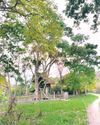
IDEAS OF 'SCENERY' AND 'LANDSCAPE' LINKING GEOGRAPHY WITH LANDSCAPE ARCHITECTURE
The term ‘landscape’ while encompassing natural and human elements, is understood differently among disciplines. Geographers, another set of experts working closely with nature, provide crucial ecological data, aiding landscape architects in creating sustainable designs.
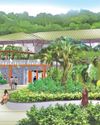
THRISSUR ZOOLOGICAL PARK KERALA
The relocated Zoo aims to showcase rich Western Ghats ecosystems, support nature conservation, and provide immersive visitor experience. The development integrates ecological restoration, architecture and landscape while improving livelihood opportunities of the local community.

ECOLOGY AND LOCAL CULTURE
With a working panel of scientists and experts from different fields of plant and animal ecology, the Nature Conservation Foundation is a Mysore-based NGO, engaged in exploring, understanding, and conserving the natural world through research and responsible engagement with society.
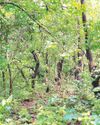
BEAUTY FOLLOWS COMPLEXITY
Designers must heed Sullivan's \"form follows function\" to avoid beauty over function. Following nature in landscape design enhances ecological productivity while promoting sustainability with principles of use of native species, biodiversity, and conservation of natural resources.